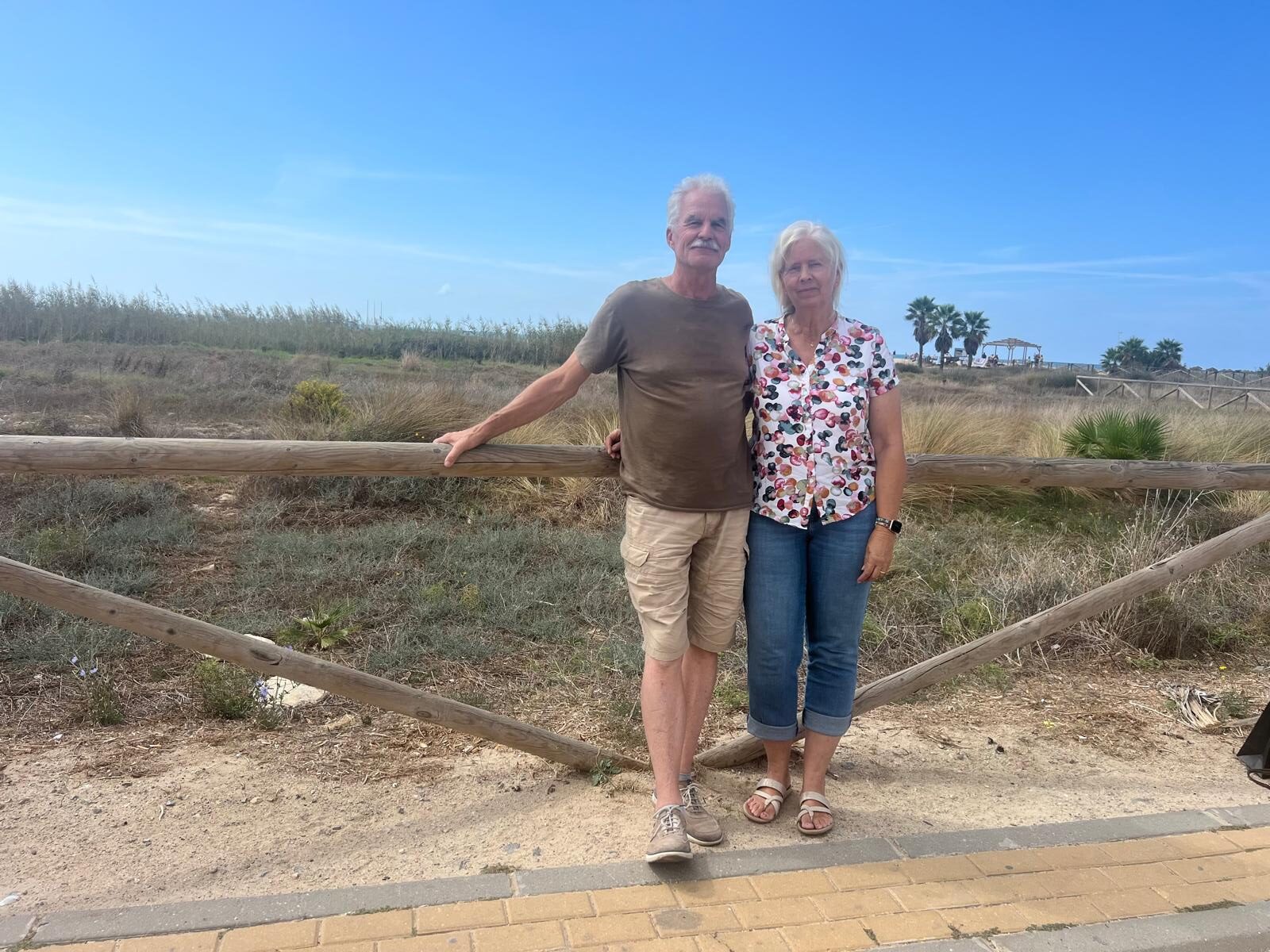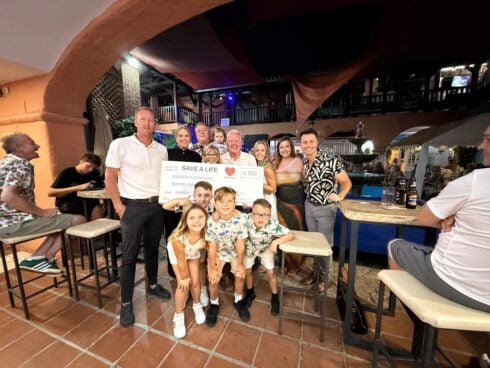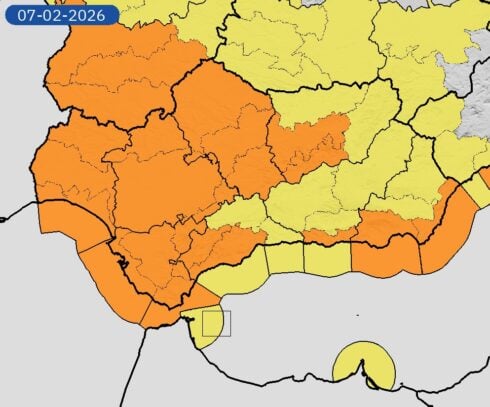THERE have been many stories of how dreams of retiring in Spain can quickly turn into nightmares when you cross paths with Spain’s notorious tax authority, Hacienda. But there are few which are as harrowing as the experience that Michelle Span-van Dorp went through.
This fall, Span-van Dorp will publish her memoir Table Number 4: Seven Years of Struggle, Stress and Strife with Hacienda, detailing her family’s harrowing fight against Spain’s tax authority following a catastrophic administrative error that drained their finances and triggered her husband’s near-fatal heart attack.
The book, which Span-van Dorp describes as both personal therapy and public warning, recounts how a single bureaucratic mistake in 2017 transformed the family’s retirement dream in Andalucia into a seven-year ordeal that has left permanent physical and psychological scars.
“I want to share my story, warn others, and let people know this is not an isolated case,” Span-van Dorp states in the book’s foreword. “Spain is our home, with all its beauty and challenges. But what happened to us should never happen to anyone.”
The nightmare began when a Hacienda official – whom Span-van Dorp refers to throughout the book as ‘Mr. Table Number 4’ after his permanent desk assignment – arrived at the family’s remote finca demanding back taxes. Despite meticulous documentation proving they had legally paid all taxes in the Netherlands, Spanish authorities began systematically seizing funds from their accounts.
The core error stemmed from Hacienda’s misinterpretation of Gerard’s military waiting allowance (wachtgeld), a Dutch pension paid through an intermediary company. Spanish officials mistakenly classified this as private employment income subject to Spanish taxation, despite Article 16 of the European Tax Treaty allowing civil servants to choose their country of taxation.
“The term wachtgeld could not be translated cleanly into Spanish,” Span-van Dorp writes. “They landed on indemnización, which comes down to employment compensation. That led them to treat it as wages. The logic of the Spanish dictionary left little room for nuance.”
What followed reads like a Kafka novel: letters sent to addresses where the family never lived, contradictory instructions from different officials, expensive translations that accomplished nothing, and mounting fines for allegedly ignoring correspondence they never received. Monthly account seizures drained even Span-van Dorp’s personal savings from making horsehair bracelets, forcing their son to intervene financially. The family was threatened with property seizure.
The stress proved devastating. In 2018, Gerard Span suffered a severe heart attack requiring two stents, with doctors attributing it directly to the ongoing crisis. He would later require additional stents as the ordeal continued. Michelle herself battled depression and sought psychological help, only to be told her situation was ‘normal – everyone has problems with Hacienda’.
Span-van Dorp recently appeared and spoke publicly about this experience on stage as part of a panel hosted by the University of Sevilla. Earlier that day, international lawyer Robert Amsterdam also spoke at the event, condemning the culture of fear created by Hacienda and the inhumanity with which the government treats taxpayers, both foreign residents and Spanish nationals.

“We absolutely support Michelle in her fight for justice, and we hope that her courage in coming forward inspires others to break the code of silence regarding Hacienda’s conduct,” said Amsterdam in a comment to the Olive Press. “Her case is emblematic of the kinds of personal suffering and psychological burden that comes with being terrorised by a bureaucracy which appears totally unaccountable and acting far outside of the rule of law.”
The new book reveals systemic issues within Spain’s tax collection system, including officials receiving commissions for identifying supposed tax evaders – creating perverse incentives to pursue innocent people. Span-van Dorp discovered her case paralleled that of businessman Agapito García Sánchez, who has fought Hacienda for over 25 years and paid more than €20 million yet still owes €16.9 million, according to filmmaker Alejo Moreno’s documentary Hechos Probados.
Most lawyers refused the case or demanded prohibitive fees. One prominent firm offered ‘peace’ for €20,000 – not vindication, just an end to harassment. Unable to afford this, Span-van Dorp fought back through official complaints, confrontations with officials, trips to Hacienda’s Madrid headquarters, and eventually, with attorney José Luis Delfín’s help, a court challenge.
In an administrative hearing lasting just three minutes, her lawyer argued that circumstances were identical across all disputed tax years. Five days later – remarkably fast for Spanish courts – the judge ruled entirely in their favour.
“The emotion overwhelmed me as rarely in my career,” writes Delfín in the book’s epilogue. “It was a triumph not only legal, but personal as well.”
While the family finally received their seized funds after seven years, legal costs remain unreimbursed, and the trauma persists. Span-van Dorp now seeks compensation for the suffering inflicted and continues connecting with other victims.
Table Number 4 combines memoir with exposé, offering readers intimate glimpses of expatriate life in Andalucia – the festivals, culture, and the family’s passion for Argentine tango – against the backdrop of their bureaucratic nightmare. The book features contributions from attorney José Luis Delfín and references to broader investigations into Hacienda’s practices.
“My fight against Hacienda is over,” Span-van Dorp writes in her epilogue. “But now we fight on principle. It is our turn to strike back – determined and forcefully. This is far from the end.”
The book will be published in multiple languages. Span-van Dorp hopes it will serve as both warning and inspiration for others facing similar injustices.
Click here to read more Business & Finance News from The Olive Press.








